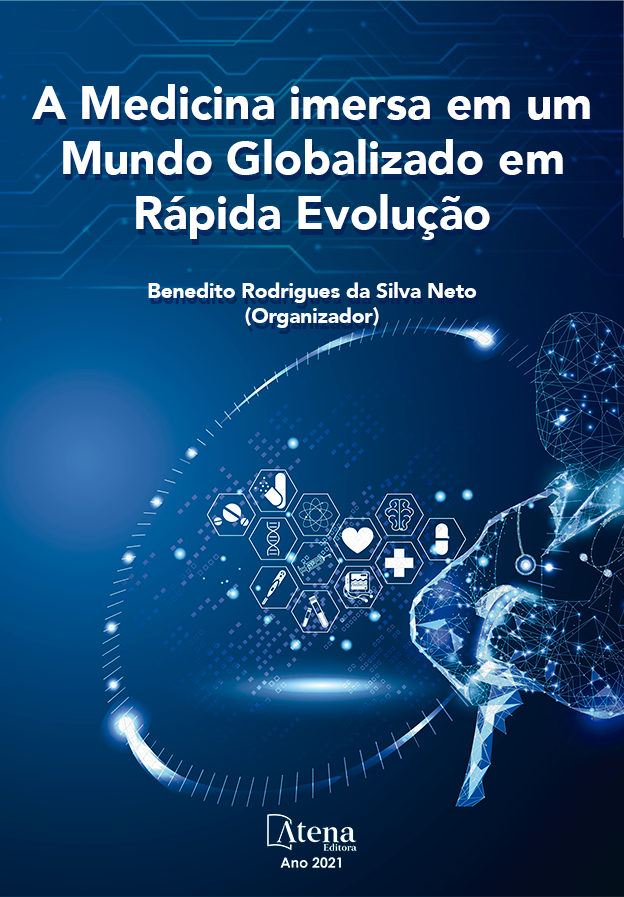
USO INDISCRIMINADO DE PSICOESTIMULANTES ENTRE OS ESTUDANTES: REVISÃO DE LITERATURA
Introdução. Atualmente, há um elevado consumo não terapêutico de substâncias psicoativas (SPAs) entre estudantes, que tem sido matéria de um importante debate entre profissionais de saúde. Uma vez que se deve elaborar estratégias de combate ao consumo incorreto e não prescrito das SPAs entre esse grupo, faz-se fundamental a descrição do perfil dos usuários desses fármacos. Objetivo. O presente estudo objetiva analisar a produção acadêmica nacional acerca do uso não prescrito de psicoestimulante entre os estudantes brasileiros. Metodologia. Uma revisão integrativa de literatura foi realizada através de uma busca utilizando os termos psicoestimulantes e estudantes, metilfenidato e estudantes, cafeína e estudantes nas bases de dados LILACS e SciELO, no período entre janeiro e julho de 2020. A seleção dos artigos foi feita em três etapas: a leitura dos títulos, seguida da leitura dos resumos e da leitura na íntegra somente daqueles artigos que preenchiam os critérios de inclusão. Resultados. Foram encontrados 25 artigos, dos quais 4 preenchiam os critérios de inclusão. Os estudos analisados entrevistaram entre 152 e 378 estudantes dos estados de Minas Gerais e Rio Grande do Sul, encontrando prevalência do uso de psicoestimulantes entre 9,8% e 57,5%. Os principais motivos alegados para o consumo de psicoestimulantes foram melhorar o desempenho acadêmico com melhora do raciocínio, atenção e/ou memória, além de compensar a privação de sono. Além disso, encontrou-se uma associação entre consumo de SPAs e maus hábitos de vida, como tabagismo, etilismo, associação com outras drogas. Conclusão. A prática de neuroaprimoramento através da utilização de SPAs é uma realidade presente na vida dos estudantes brasileiros e existe um pequeno número de pesquisas nacionais a respeito deste tema, sendo necessário maior investimento, a fim de descobrir os reais riscos e benefícios, além de traçar estratégias visando coibir o consumo irresponsável dessas substâncias.
USO INDISCRIMINADO DE PSICOESTIMULANTES ENTRE OS ESTUDANTES: REVISÃO DE LITERATURA
-
DOI: 10.22533/at.ed.07921080129
-
Palavras-chave: Psicoestimulantes. Metilfenidato. Cafeína. Uso Off-Label. Desempenho Acadêmico.
-
Keywords: Psychostimulants. Methylphenidate. Caffeine. Off-Label Use. Academic performance.
-
Abstract:
Introduction. Currently, there is an elevated non-therapeutic use of psychoactive substances among students, which has been the matter of an important dabate between health professionals. In order to formulate strategies against the incorrect and non-prescribed use of psychoactive substances among this group, the description of their profile isof fundamental importance. Objectives. The present study aims to analyse the national academic production about the non-prescribed use of pychostimulants among Brazilian students. Method. An integrative literature review was done by searching for the terms psychostimulants and students, methyphenidate and students, caffeine and students on LILACS and SciELO databases, betweenJanuary and July of 2020. The selection of the studies was done in three steps: the reading of the title, followed by the reading of the abstracts and the full reading of those studies which met the inclusion criteria. Results. 25 studies were found, 4 of which met the inclusion criteria. The analysed studies interviewed between 152 and 378 students from Minas Gerais and Rio Grande do Sul states, finding the prevalence of psychostimulants use between 9,8% and 57,5%. The main alleged motives for psychostimulant consumption was to increase academic performance by improving cognitive function, attention span and/or memory, and, besides that, to compensate sleep deprivation. In addition, it was found na association between psychostimulant use and unhealthy life habits, such as smoking, alcohol consumption, simultaneous use of other drugs. Conclusion. The practice of cognitive enhancement by psychostimulants use is a reality present in the lives of Brazilian students and there is a small amount of national studies about said theme, which poses the need for larger investiments in order to discover the real risks and benefits, besides formulating stratagies that aim to halt irresponsible use of those substances.
-
Número de páginas: 21
- Vítor Fonseca Carvalho Soares
- Rafael Leite de Oliveira
- Marilene Rivany Nunes
- Maria Rafaela Itabaiana de Oliveira
- Italo Thiago Tavares Vasconcelos
- Gabriel Freitas Librelon
- Danilo José Ferreira Filho
- Brenda Viana Valadares
- Arthur Souto Silva
- Larissa Fonseca Reis


